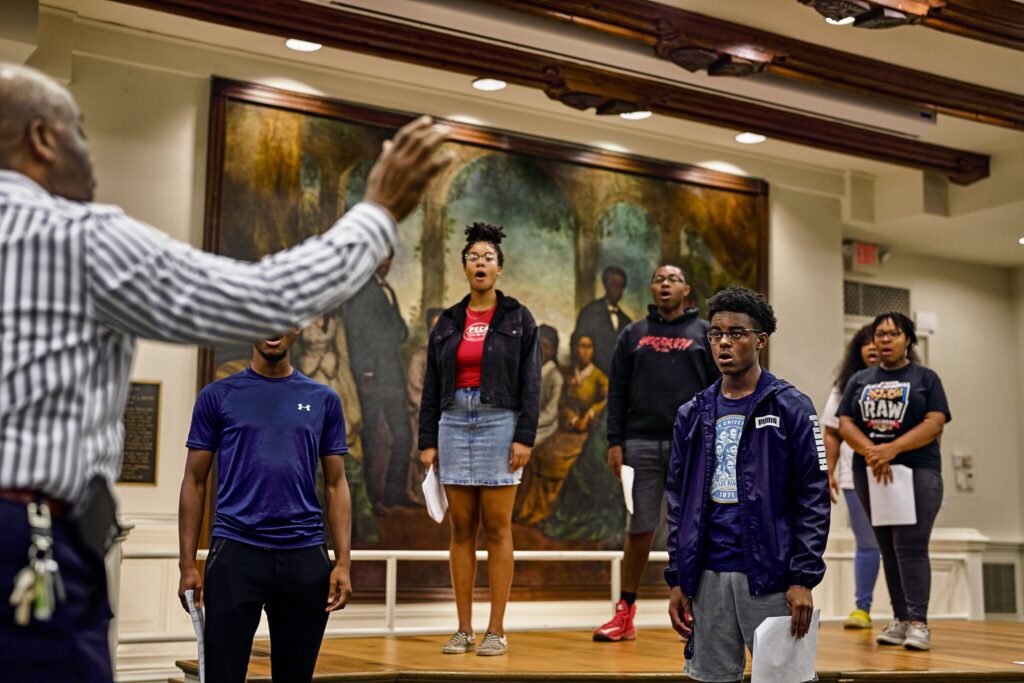In an account of her years as assistant director of the Fisk Jubilee Singers, Ella Sheppard, a gifted musician who had been enslaved as a child, recalled one of the student ensemble’s earliest excursions outside Nashville, only a handful of years after the Civil War. The singers were all students at Fisk University, a school for emancipated former slaves. They were stranded at a rural train station with Ms. Sheppard and their director, a white abolitionist named George White, when an angry mob arrived. In the face of the white men’s fury, the students began to sing.
“One by one, the riotous crowd left off their jeering and swearing and slunk back until only the leader stood near Mr. White and finally took off his hat,” Ms. Sheppard wrote. “The leader begged us, with tears falling, to sing the hymn again.”
When I stepped into Jubilee Hall on the campus of Fisk University last week, 150 years after the original Fisk Jubilee Singers sang a racist mob into silence, the lobby of the historic building was under renovation and covered in drop cloths. There was no sign directing me to the rehearsal space of the Fisk Jubilee Singers, whom I had come to hear, but a student soon appeared to lead me through the halls. “I’m Hezekiah,” he said. “One of the tenors.”

